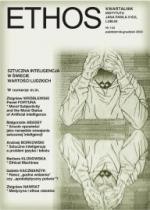 zobacz powiększenie | DOI 10.12887/36-2023-4-144-11 Izabela Kaczmarzyk, A Thing “Worth Seeing” or an “Apocalyptic Monster”? Consequences of the Mechanisation of the Upper Silesian Cultural Environment Cena brutto: 7,00 PLN za szt. |
|
From the end of the eighteenth century to the turn of the nineteenth and twentieth centuries Upper Silesia saw dynamic industrialisation and urbanisation. The ubiquitous presence of machines had a strong culture-forming impact and therefore a change in the cultural pattern from the traditional system between man and nature to the modernising relationship between man and machine was clearly marked in this region. Machines were perceived in two different ways. On the one hand, as the evidence of human genius owing to which human beings gained a sort of prosthesis increasing the strength of their muscles and enabling them to control nature (an example of such an understanding of the machine were the descriptions of the first steam engine installed in Friedrichsgrube in Tarnowskie Góry) and, on the other hand, as a mechanical bestiary, inducing anxiety, or sometimes even fright (such an approach appears more frequently in later texts, from the second half of the nineteenth and early twentieth centuries). An important consequence of working in a mechanised environment was the development of skills among the inhabitants of the industrialised part of Upper Silesia, which complemented their physical strength and consisted in the ability to perform certain activities in a certain time, cooperating with others in a certain way, sometimes with improvement-oriented inventiveness. Industry (and the related mechanisation) thus became one of the most important factors in the Upper Silesian ethos. Nevertheless, despite the perils associated with the presence of machines and work on machines, that stage of mechanisation did not violate human subjectivity since the machine was not then as strong a competitor as modern technological systems appear to be. Keywords: Upper Silesia, machine, industrialisation Contact: Institute of Cultural Studies, Faculty of Philosophy, Jesuit University Ignatianum, ul. Kopernika 26, 31-501 Cracow, Poland Pliki do pobrania: » Kaczmarzyk.pdf | |
